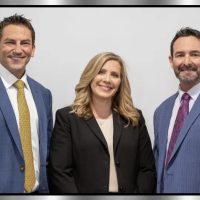Copyright Vs. Trademark

Copyrights and trademarks are fairly common terms when discussing ownership of intellectual property. But what is the difference between the two and what are they used for? One easy way to think about it is that copyrights primarily protect the rights of people who create while trademarks mainly protect the use of a company’s name and its product names. Today, we’ll discuss these two distinct legal concepts and provide some examples with which you may be familiar.
Copyright
A copyright refers to the exclusive legal right granted to an author, artist, or creator to use, distribute, and profit from their original works such as books, music, paintings, or photographs. Copyright protection is automatic upon the creation of the work, and the copyright owner has the right to prevent others from using, copying, or distributing the work without permission. Copyright law typically lasts for the life of the author plus a certain number of years after their death.
Copyright Infringement
Because copyrights protect creators’ original works, without first obtaining permission from the owner, creator, or holder of the copyrighted material, the following actions would constitute copyright infringement:
- Recording a film in a movie theater
- Using images on your company’s website that you don’t own
- Using copyrighted songs in your company’s advertising
- Modifying a copyrighted image and displaying it on your company’s website
- Selling merchandise which features copyrighted words or images
- Downloading books without paying for their use
- Copying any literary or artistic work without a license or written agreement
Trademark
Trademarks, on the other hand, refer to a word, phrase, symbol, design, or combination of these that identifies and distinguishes the source of goods or services of one party from those of others. Trademarks are used to protect brand names, logos, slogans, and other identifying marks of a company. Trademark protection is obtained by registration with the relevant government agency and gives the owner the exclusive right to use the mark in connection with their products or services. Trademarks can last indefinitely as long as they are actively used and maintained.
Some common examples of trademarks are brand names like Apple, L.L. Bean and Wendy’s, product names like Whopper and AirPods, company logos like the Nike Swish, slogans like “I’m Lovin’ It” and “Just Do It,” and even vaguer concepts like Disney’s distinctive stylized font.
One of the more famous trademark battles was between Apple Corps and Apple Inc. The Beatles founded the Apple Corps music company eight years before Apple Inc. was founded by Steve Jobs. When the latter was first sued by the Beatles, Jobs agreed not to enter the music business and paid a cash settlement. However, Apple Inc. was sued again after it introduced iTunes. That lawsuit was resolved when Jobs agreed to purchase the trademark rights from Apple Corps and then sublet them back.
If you are interested in protecting you or your company’s intellectual property, you’ll want an experienced attorney who is knowledgeable in copyright and trademark law. At our firm, we have a team of experienced trademark and copyright attorneys ready to serve you. We provide quality trademark and copyright services and are here to answer your questions and help you navigate the complex world of intellectual property law.



